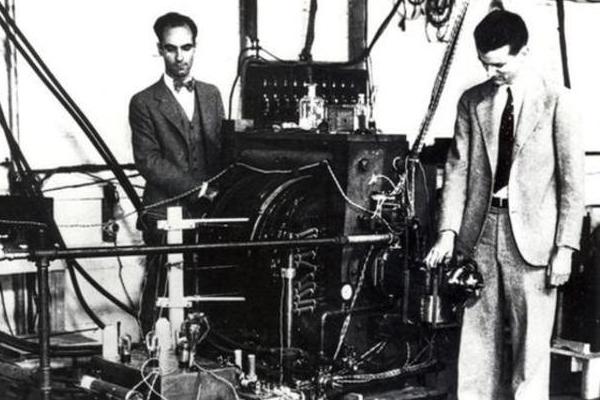Muon Definitive Discovery

The picture above shows Carl Anderson (left) and Seth Neddermeyer (right) with the magnet cloud chamber that Anderson used to discover the positron in 1932.
Carl David Anderson won the Nobel Prize in Physics in 1936 for discovering the positron, and in the same year, he and his graduate student Seth Neddermeyer discovered another particle, the muon. They carried out measurements of energy loss of the particles occurring in cosmic rays showers when going through heavy materials like platinum. At the time they where working at Caltech, later Neddermeyer went on to work on the Manhattan Project.
The new particle was 207 times more massive than the electron, but with the same spin and electric charge as the electron. Its first observation happened as a product of a cosmic ray and was known as mu-meson, later named as muon. Initially they thought it was a pi-meson, or pion as it is now known, a particle that had already been predicted by the Japanese physicist Hideki Yukwa, who was later awarded the Physics Nobel Prize in 1949 for predicting the existence of mesons in his theoretical studies on nuclear forces. Later it became clear that this particle was not a pion but an entirely new one, since it did not participate in the interactions of the strong nuclear force.
The muon thus became the first subatomic particle in a long list of particles which were later discovered that forced a reorganization on what was until then known in the field of particle physics.
Publications:
"Cloud Chamber Observations of Cosmic Rays at 4300 Meters Elevation and Near Sea-Level" (Anderson and Neddermeyer, 1936)
"Note on the Nature of Cosmic-Ray Particles" (Neddermeyer and Anderson, 1937)
